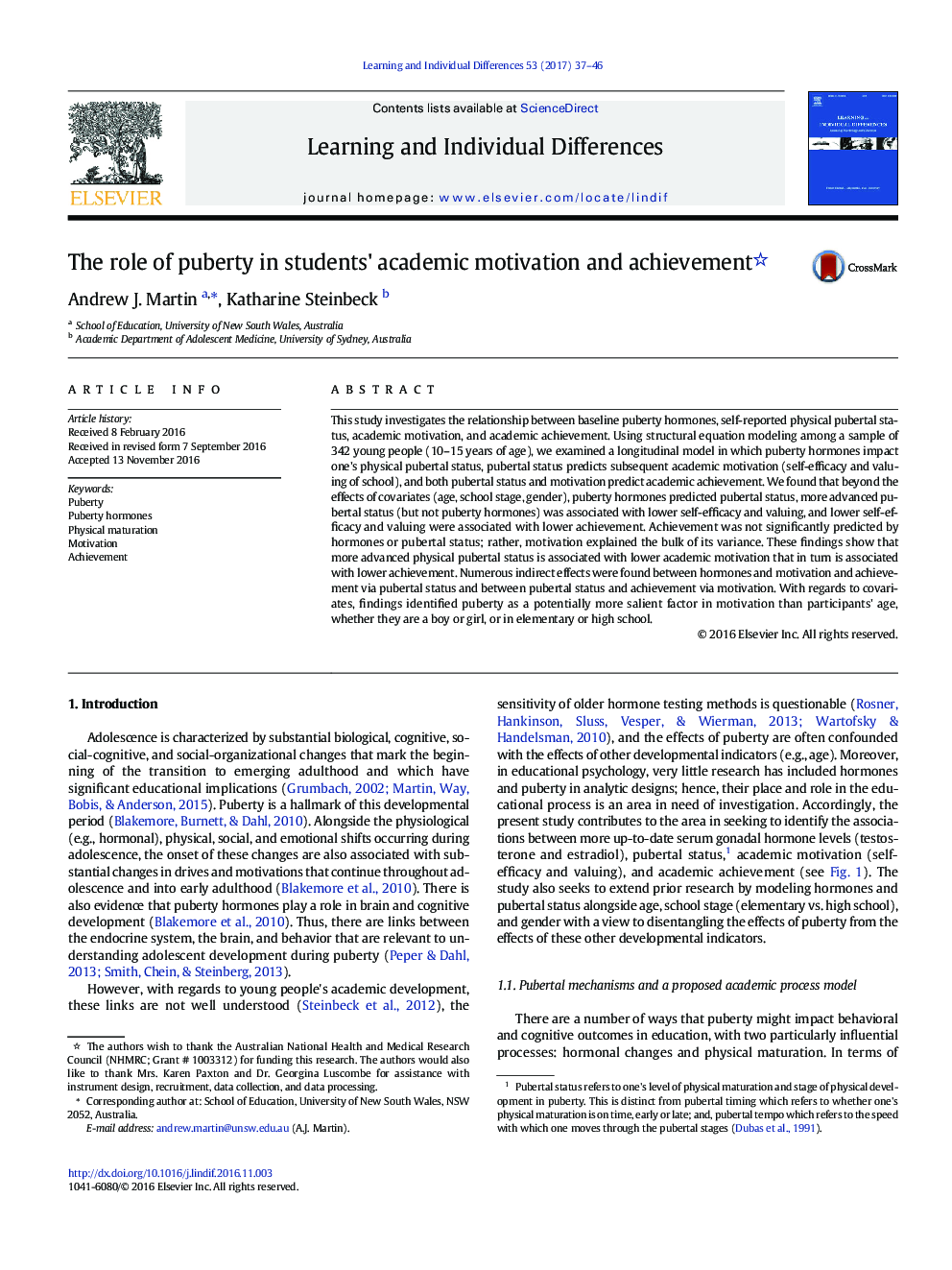| کد مقاله | کد نشریه | سال انتشار | مقاله انگلیسی | نسخه تمام متن |
|---|---|---|---|---|
| 4940178 | 1436370 | 2017 | 10 صفحه PDF | دانلود رایگان |

- This study investigated the relationship between puberty, motivation, and academic achievement.
- Puberty hormones predicted pubertal status.
- Pubertal status was associated with lower self-efficacy and valuing of school.
- Lower self-efficacy and valuing were associated with lower achievement.
- Puberty appeared a more salient factor in motivation than age, gender, or elementary/high school status.
This study investigates the relationship between baseline puberty hormones, self-reported physical pubertal status, academic motivation, and academic achievement. Using structural equation modeling among a sample of 342 young people (10-15Â years of age), we examined a longitudinal model in which puberty hormones impact one's physical pubertal status, pubertal status predicts subsequent academic motivation (self-efficacy and valuing of school), and both pubertal status and motivation predict academic achievement. We found that beyond the effects of covariates (age, school stage, gender), puberty hormones predicted pubertal status, more advanced pubertal status (but not puberty hormones) was associated with lower self-efficacy and valuing, and lower self-efficacy and valuing were associated with lower achievement. Achievement was not significantly predicted by hormones or pubertal status; rather, motivation explained the bulk of its variance. These findings show that more advanced physical pubertal status is associated with lower academic motivation that in turn is associated with lower achievement. Numerous indirect effects were found between hormones and motivation and achievement via pubertal status and between pubertal status and achievement via motivation. With regards to covariates, findings identified puberty as a potentially more salient factor in motivation than participants' age, whether they are a boy or girl, or in elementary or high school.
Journal: Learning and Individual Differences - Volume 53, January 2017, Pages 37-46